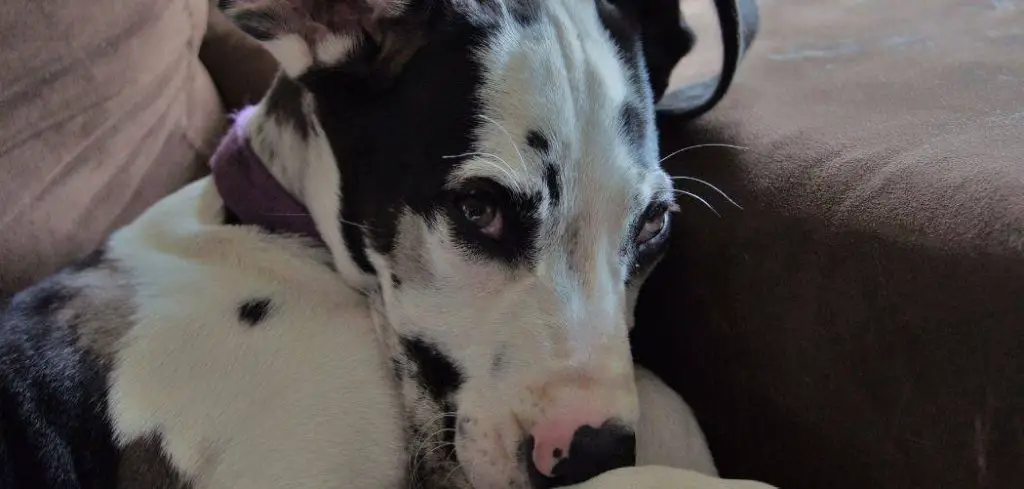Panting and shaking after a vaccine can be worrying for dog owners, especially when it happens soon after the appointment.
While mild side effects are common, it’s important to know when it could signal something more serious.
We outline the common causes of a dog panting and shaking after being vaccinated, what you can do at home, and when to seek veterinary help.
Table of Contents
Dog Panting and Shaking After Vaccine — Why It Happens
A dog panting and shaking after a vaccine can result from stress, mild immune reactions, pain at the injection site, or, in rare cases, an allergic reaction. Dogs may also be responding to the experience itself — the trip to the vet, restraint, and handling — which can trigger anxiety.
While most cases resolve quickly, some situations require prompt veterinary attention.

Dog Panting and Shaking After Vaccine: Common Causes
Stress and Anxiety
Vet visits can be stressful for many dogs. The unfamiliar smells, handling, and environment can trigger panting and trembling.
These symptoms may last for hours after the visit, especially if your dog is naturally anxious.
Calming reassurance and a quiet environment can help them settle.
Related: Dog panting excessively (Causes and What To Do)
Pain or Soreness at the Injection Site
Vaccines can cause mild discomfort where the needle was inserted.
Your dog may pant due to pain or stress and may shake as a response to the sensation.
You might notice them licking the area or being sensitive when it’s touched.
Mild Immune Response
Panting and shaking can occur as part of the body’s normal immune reaction to a vaccine.
Low-grade fever, fatigue, and reduced appetite sometimes accompany these symptoms.
They typically improve within 24–48 hours.
Allergic Reaction
In rare cases, vaccines can trigger an allergic response.
Panting, shaking, swelling of the face, hives, vomiting, or sudden weakness require immediate veterinary care.
This can develop within minutes to hours after vaccination.
Fever or Systemic Inflammation
Some dogs develop a temporary fever after vaccination.
Panting may help them cool down, and shaking can occur from feeling chilled.
If the fever is high or your dog seems very unwell, contact your vet.
Underlying Health Conditions
Pre-existing health problems may make a dog more sensitive to the stress of vaccination.
If your dog has heart, respiratory, or metabolic issues, post-vaccine symptoms can be more intense.
A vet check ensures nothing more serious is going on.
What to Do If Your Dog Is Panting and Shaking After Vaccine
Provide a calm, quiet space for your dog to rest after their vaccination.
Offer fresh water and avoid strenuous activity for the rest of the day.
Check the injection site for swelling, redness, or heat.
Monitor their breathing and energy levels closely.
Most mild symptoms resolve on their own, but always keep a close eye for worsening signs.
When to Call or Visit Your Vet
Seek immediate veterinary help if your dog shows swelling of the face or muzzle, persistent vomiting, collapse, or difficulty breathing.
Contact your vet if panting and shaking persist beyond 24–48 hours or are accompanied by high fever, lethargy, or loss of appetite.
If your dog has had a previous adverse reaction to vaccines, always inform your vet before future appointments.
Read more: Dog Panting and Shaking After Walk (Here’s why)
Key Takeaway
Panting and shaking after a vaccine are often mild and short-lived, caused by stress, soreness, or a normal immune response.
However, severe or persistent symptoms — especially signs of an allergic reaction — require immediate veterinary care to keep your dog safe.
